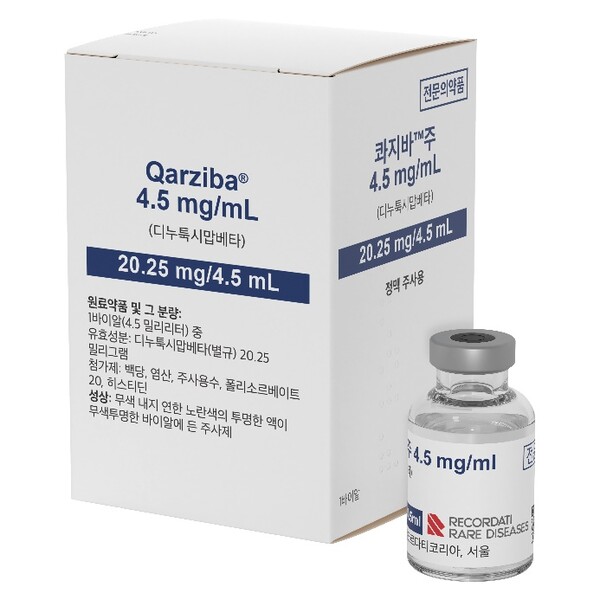The treatment landscape for neuroblastoma, the most common cancer in children outside of blood and brain tumors, is set to improve. Starting next month, the immunotherapy drug Qarziba (dinutuximab beta), a critical treatment option for high-risk and relapsed/refractory neuroblastoma patients, will be covered by health insurance in Korea.

According to Recordati Korea, Qarziba will be reimbursed for pediatric neuroblastoma patients starting next month, as announced by the Ministry of Health and Welfare. It is currently the only licensed immunotherapy in Korea for high-risk and relapsed/refractory neuroblastoma.
The Ministry of Health and Welfare specified that Qarziba will be covered for neuroblastoma patients aged 12 months to 20 years who have not received anti-GD2 antibody treatment before and meet specific criteria, including "INSS stage 4" or "INSS stage 2-3 with MYCN gene amplification," post-hematopoietic stem cell transplant following partial or better response to induction chemotherapy, and treatment initiation within six months of the transplant.
While survival rates for neuroblastoma have improved significantly in the last two decades due to treatment advancements, high-risk and relapsed/refractory patients still face frequent relapses and poor outcomes, highlighting an unmet medical need.
Qarziba has been available in Europe since 2017 as the standard of care for maintenance therapy in high-risk neuroblastoma. However, Korea had no approved immunotherapy for maintenance therapy for nearly eight years until Qarziba's approval in June 2024, leaving a significant treatment gap.
The reimbursement decision was supported by pivotal studies, including the phase 3 APN311-302 trial. In this study, Qarziba demonstrated a five-year event-free survival rate of 57% and an overall survival rate of 64% in high-risk neuroblastoma patients receiving maintenance therapy, compared to 42–50% in a historical control group without Qarziba.
“High-risk and relapsed/refractory neuroblastoma patients face significant challenges due to frequent relapses and poor prognoses," said Professor Lee Ji-won of pediatric hematology and oncology at Samsung Medical Center. "Qarziba has transformed maintenance therapy for high-risk neuroblastoma by significantly improving survival rates compared to non-immunotherapy approaches.”
Professor Choi Jung-yoon of Seoul National University Children's Hospital added, “International guidelines, including those from SIOPEN and NCCN, already recommend anti-GD2 antibodies like Qarziba as standard immunotherapy for high-risk neuroblastoma. Korean patients will now have access to this global standard of care, which will bring meaningful changes to the domestic treatment environment.”
Lee Yeon-jae, Head of Asia at Recordati Rare Diseases, remarked, “The inclusion of Qarziba in Korea’s reimbursement system brings renewed hope to pediatric patients with high-risk and relapsed/refractory neuroblastoma, who previously lacked licensed immunotherapy options. Recordati Korea remains committed to developing innovative therapies and improving the treatment landscape for rare pediatric cancers and other rare diseases in Korea.”
Related articles
- 'Qarziba, global standard for neuroblastoma, is urgently needed to expand access to treatment’
- Pediatric rare disease drug Qarziba gets green light for coverage
- Patient groups welcome Qarziba's reimbursement as 1st case of simultaneous approval, evaluation, negotiation
- Buoyed by Qarziba’s success, MFDS expands support for innovative drugs

